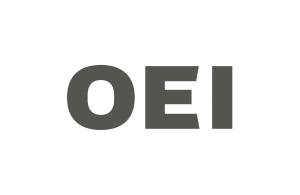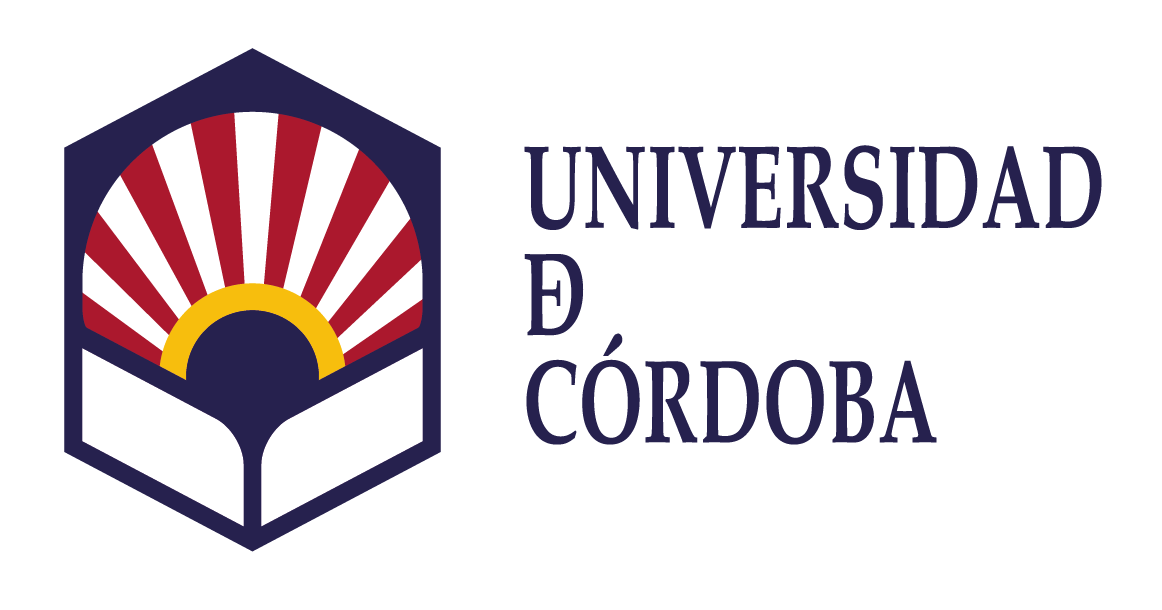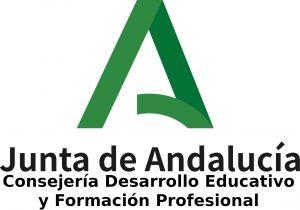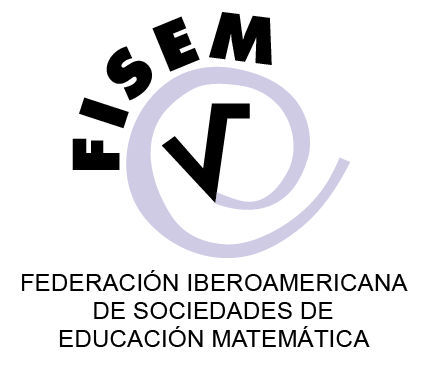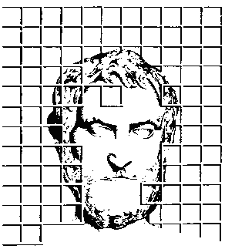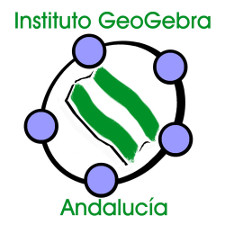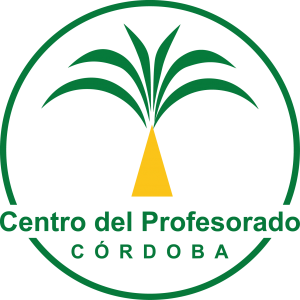Proceedings of the 1st International GeoGebra Congress
GeoGebra, since its creation by Markus Hohenwarter, is known and used by millions of users worldwide who create and publish materials through the Web. In this international conference, new classroom experiences, tools and researchs on how to use it as a teaching resource at different educational levels and in different countries will be shared.
The principal objective of this congress that will be hold in the
city of Córdoba (Spain) is to show, through conferences, workshops and
communications, that Geogebra can promote a methodological change in teaching.
THEMATIC GROUPS
- GeoGebra in the teaching and learning of Mathematics in the different modalities and educational levels
This thematic group will include communications and workshops that present experiences and reflections on the use of GeoGebra in the classroom. - GeoGebra and research.
Thematic group will be dedicated to studies or research work whether qualitative or quantitative around GeoGebra or its use in mathematical education. - GeoGebra in teacher training in Mathematics.
This thematic group will include all aspects related to teacher training, both specific to GeoGebra, and its integration into other aspects of teacher training in mathematics. - GeoGebra in STEAM
Experiences and educational proposals that address the use of GeoGebra as another resource in other areas or in STEM or STEAM projects will be acepted as submisions to this thematic group. - The future of GeoGebra
All aspects related to the future that users demand for this software will be included in this thematic group, namely, the use of GeoGebra in augmented reality, artificial intelligence, automatic demonstration, etc. - GeoGebra in other fields not necessarily related to teaching.
Clearly, the use of GeoGebra goes beyond the educational field, so this nucleus will collect all the actions related to the use of GeoGebra in other fields, such as scientific dissemination, mathematical tourism, 3D printing for fields such as medicine, engineering, design, etc.
Work modalities
Submissioned works may follow one of the following modalities:
Short Communication (CB)
In twenty minutes, the author will be able to present his work, an experience or a research report (completed or ongoing), followed by five minutes to answer any questions from the attendees.
Póster (P)
The size of the Poster must be A0 (width of 841 mm and height of 1189 mm), with a clear visualization of the text and graphics, being legible from a distance of one meter.
In the communications and in the posters, a maximum of 4 authors or authors will be admitted, and to be definitively accepted, 50% of them must be registered in the congress.
The works presented will be adjusted to one of the thematic groups indicated above and to one of the following educational levels:
Educational levels
- Kindergarten (3 to 5 years old) and Primary (6 to 11 years old)
- Middle or Secondary (12 to 15 years old) and Tertiary or Baccalaureate (16 to 18 years old) and Vocational Training.
- University.
Work Submission Rules
- The deadline for submission of papers ends on July 15, 2023.
- The acceptance of the works presented by the scientific committee will be carried out by the organization before July 31, 2023.
- The maximum number of authors that can sign a work will be four.
- The authors will have until September 15 of 2023 to pay the registration fee, if they have not done so in advance.
- For the definitive acceptance of a work it will be necessary that at least half of the authors of the authors are registered in the congress (if the work is signed by three authors, at least two must be registered in the congress).
Authors in the communication and poster modality may send for evaluation by the scientific committee a summary or extended summary, with a minimum of 250 words and a maximum of four pages.
Papers must be submitted in Spanish, English or Portuguese.
Once the congress has been held, the accepted papers may be published in the minutes, if the author wishes, for which they will send the final text, in accordance with the characteristics of the file established in the following model click here, taking into account the following aspects:
- Graphics or illustrations: inserted in the body of the work in the corresponding place.
- References: they will be specified at the end of the work (not exceeding 8 total pages). They will be sorted alphabetically by last name of the authors, following the APA format (version 7).
The works in modalities, workshop and short communication, will have to be described in an eight page paper (references included).
The minutes will be published online with their corresponding ISBN number.
Jobs may not weigh more than 10 MB
Work presentation
Teachers and students of any educational level and researchers are invited to present their work at this International GeoGebra Congress.
Both the proposals for communications and for the poster will be sent, with a minimum of 250 words and a maximum of four pages, according to the presentation template that can be downloaded at the following link:
The works (communications or posters) will be sent to geogebra@fespm.es
The authors of the posters accepted by the scientific committee must present them at the congress in A0 format (841 mm wide and 1189 mm high), with a clear visualization of the text and graphics in a way that can be readable from one meter away .
The authors of the communications accepted by the scientific committee that, once celebrated, the congress wants to publish them in the minutes, will tend to send the complete version of the same.
Scientific Committee
| Tomás Recio Muñiz (Presidente) | Universidad Antonio de Nebrija (Madrid) / Instituto GeoGebra de Cantabria | España |
| José María Chacón Íñigo (Secretario) | Instituto GeoGebra de Andalucía / SAEM THALES | España |
| Natividad Adamuz Povedano | Universidad de Córdoba | España |
| Roxana Auccahuallpa Fernández | Universidad Nacional de Educación – UNAE | Ecuador |
| Jaime Carvalho e Silva | Universidade de Coimbra | Portugal |
| José Antonio Mora Sánchez | Instituto GeoGebra de la Comunidad Valenciana | España |
| Mª. Cristina Naya Riveiro | Universidade da Coruña | España |
| Cecilia Alba Russo Cáceres | Johannes Kepler University (JKU) | Uruguay |
| Enrique de la Torre Fernández | Universidade da Coruña | España |
Organizer Committee
| Agustín Carrillo de Albornoz Torres (Presidente) | Federación Española de Sociedades de Profesores de Matemáticas |
| Bienvenido Espinar Cepas | Federación Española de Sociedades de Profesores de Matemáticas |
| Encarnación Amaro Parrado | Federación Española de Sociedades de Profesores de Matemáticas |
| Francisco España Pérez | Sociedad Andaluza de Educación Matemática Thales |
| Francisco Haro Laguardia | Sociedad Andaluza de Educación Matemática Thales |
| Juan Antonio Reyes Delgado | Sociedad Andaluza de Educación Matemática Thales |
| Juan Carlos Toscano Grimaldi | Federación Española de Sociedades de Profesores de Matemáticas |
| Juana María Navas Pleguezuelos | Federación Española de Sociedades de Profesores de Matemáticas |
Program
Schedule
| TIME | November 9 | November 10 | November 11 | November 12 |
| 9,00 | Conference José Manuel Arranz “GeoGebra y los tres problemas clásicos” Diego Liebán “GeoGebra para el desarrollo del pensamiento espacial y combinatorio: posibilidades con recursos digitales y físicos” | Conference Equipo GG Internacional Melanie Tomaschko “GeoGebra Apps” Tanja Wassermair “Math Solver & GeoGebra Classroom” “GeoGebra Teaching Resources” | ||
| 10,00 | Communications | Communications | Communications | |
| 11,00 | Accreditations | Communications | Communications Pósters GeoGebra Societies and Institutes Meeting | Conferencia Laura del Río “Microjuegos a la GeoGebra” |
| 12,00 | Accreditations | Pausa | Pausa | Pausa |
| 12,30 | Accreditations | Conference Celina Aparecida Almeida Pereira Abar “Uma formacão continuada de professores para a utilização do GeoGebra Discovery no estudo da geometría plana” | Conference Zsolt Lavicsa «Technological and Pedagogical Innovations to advance STEAM Education» | Conference Rafael Losada Liste “GeoGebra Principia” |
| 13,30 | End of session | End of session | Closing | |
| 16,00 | Opening | Conferences: Karina Rizzo “FotoGebra como una oportunidad para abordar los retos en la enseñanza y aprendizaje de la matemática, en la era digital” José Luis Muñoz Casado “Explorando la modelización matemática con GeoGebra” | Conferences: Marco Vinicio Vásquez Bernal “Impacto de GeoGebra en los procesos de enseñanza aprendizaje de Ecuador” Alexandre Emanuel da Silva Trocado “Aplicaciones con Feedback automático” | |
| 17,00 | Conference Fabián Vitabar «Beneficios y complicaciones didácticas de GeoGebra y sus novedades» | Presentation of MATESGG and other FESPM projects | GeoGebra Discussion Markus Hohenwarter Laura del Río Fabián Vitabar | |
| 18,00 | Conference José Muñoz Santonja “GeoGebra y el arte cibernético” | Conference Markus Hohenwarter “GeoGebra – The Present and the Future” | Conference José Manuel dos Santos dos Santos “Pensamento Computacional com o GeoGebra no Currículo de Matemática” | |
| 19,00 | End of session | End of session | End of session |
Proceedings
Proceedings of the 1st International GeoGebra Congress. Cordoba (Spain), 9-12 November 2023
Registration
Registration Rules
To register it is necessary to complete a form with all the data and make the payment of the registration fee using any of the available modalities.
Registration fees are detailed according to the following periods and benefits are offered for members of the companies affiliated to the FESPM:
| Payment date | FESPM members | Non members |
| Until September 15, 2023 | 60 € | 80 € |
| From September 16 to October 15, 2023 | 90 € | 120 € |
| As of October 16, 2023 | 120 € | 150 € |
To prove the membership of the FESPM you must indicate it when you register through the Web; With the data entered, the condition associated to the FESPM with the authorities of the respective company will be verified.
Registration will not be refunded except for duly justified serious causes.
Headquarters
The GeoGebra International Congress will be held at the Rector’s Office of the University of Córdoba, located at Avenida de Medina Azahara, 5.
Visiting Cordoba
As the song by Medina Azahara says, «Córdoba arriving at day you make me fall in love, and at night you bewitch me alone
and with your magic you make me dream”, so we hope that you fall in love, bewitch and make you dream during your stay in our congregation.
We offer you some information hoping that you will find it useful to plan your visit.
And don’t forget that another thing you can do is enjoy the tapas that Córdoba offers in its bars and restaurants. For this activity we will prepare detailed information that we will give you at the time of your accreditation at the GeoGebra international congress.
How to get to Cordoba
Córdoba is a destination open to the world, so it is well connected and you can travel by train and road or by plane arriving in Seville or Granada.
By plane
If you decide to fly to Seville, you will land at Seville Airport, also called San Pablo Airport. A first class airport in a city with a long aeronautical tradition. Not surprisingly, next to the Seville airport, there is one of the most important aeronautical complexes in Europe.
From Seville airport you can get to the Santa Justa Station to take a high-speed train to go to Córdoba. The train ride takes about 45 minutes. It is also possible to travel by bus from Seville.
By train
Córdoba is a pioneer city in the development of high speed in Spain. In fact, it is located on the first high-speed rail line to be built in our country for the EXPO in 1992.
You can currently get to Córdoba Station on high-speed lines from different Spanish cities, the closest being Seville, Malaga, Granada and Madrid.
By car
Córdoba is perfectly communicated by road. A network of motorways connects it from all cardinal points: the A-92 with Malaga and Granada, the A-4 with Seville and Madrid.
Sponsors
Partners
Sponsors
